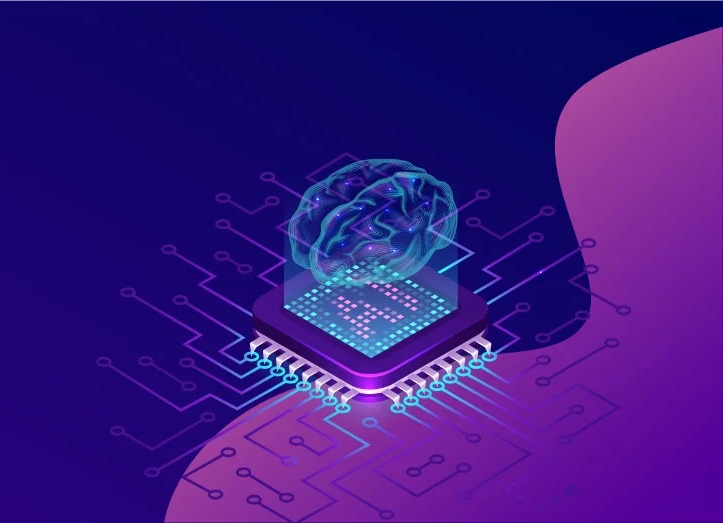
Where Healthcare Meets Tech: Three Crucial Areas Of Discussion

Having been in the same room with thought leaders, disruptors and changemakers from all over the world who focus on health information and technology in an effort to create better global healthcare, I’ve been pondering the intersection between healthcare and tech a lot lately. Today, I’d like to share several topics of conversation that seem crucial to me in successfully collaborating with healthcare organizations from a tech company standpoint, especially in regard to new tech, IT team implementations and customized solutions.
How Technology Can Collaborate With Healthcare Companies: Three Crucial Areas Of Discussion
This quarter’s main points of discussion for tech companies assisting the healthcare industry center on three areas.
1. Artificial Intelligence In Healthcare
The first has to do with artificial intelligence, particularly in terms of improving the patient experience, lowering costs, and speeding up patient selection and triage. A lot can be said about the potential of AI when applied to healthcare.
According to Huawei Technologies (via the World Economic Forum), “Smart wearable devices can collect signals from users in real time, identify abnormal heart rhythms with AI, and upload the results to Huawei Research.” Huawei considers 5G tech solutions already offered in China as “A 5G-powered remote emergency channel that links to a command centre gives doctors equipped with VR glasses the same view as if they were actually inside the ambulance.”
These assertions can come across as futuristic, yet such ongoing implementations are only a small part of the full potential Huawei and many others see in AI to power healthcare.
2. Cybersecurity
The second topic of common discussion at the moment quite naturally revolves around cybersecurity. One industry report at the beginning of this year affirmed that “hospitals globally face increasingly damaging breaches after a decade of increased cybercriminal activity.” It was also reported at the end of 2022 that healthcare data breaches doubled in the last three years for a “potentially deadly impact on patient care.”
On the topic of cybersecurity, HIMSS points to the “CIA triad,” three main principles of cybersecurity in healthcare: confidentiality, integrity and availability of information. Technology can lend healthcare a hand in protecting “electronic information and assets from unauthorized access, use and disclosure.”
3. Data Integrity And Security
Finally, the third topic of common discussion, which is also closely tied to the previous point, is data integrity and security, particularly around the use of AI in processing patient information.
We need to define effective measures to ensure healthcare and patient data remain secure. Our teams can monitor implementations closely to brainstorm new versions and ideas. Yet the topic should furthermore be taken on at all levels of leadership, including high levels of the healthcare sector, but especially by the heads of tech departments and those in the C-suite.
We can offer healthcare decision makers diverse technological solutions to their unique problems—some they may not even be aware of having. As McKinsey highlighted, healthcare services and technology (HST) companies can “offer more complete, accurate, speedy, and embedded solutions; and expand their solutions and capabilities into new markets and customer segments.”
Tech companies can also open conversations of investment in deeper data and analytics for the sector, including a not-so-far-off consideration of mergers, acquisitions and diverse partnerships, as McKinsey also stated.
Facing The Need For Specialized Training And Experience
To reach these ambitious objectives, however, I’ve found experienced data engineers to be of tremendous help, especially when they possess Java profiling and extensive prior expertise in the medical field. A background in healthcare adds up in our niche as informed talent can more easily assist in ramping up new opportunities.
The aforementioned McKinsey article also stressed five essential competencies for HST companies, which include “access to diverse healthcare data; data aggregation for longitudinal medical records; advanced analytics; multidomain intelligence and expertise; and workflow integration.”
Leveraging data analytics for effective and high-class consulting for data management can result in truly accelerated digital transformations for enhanced performance in healthcare.
What Tech Outsourcing Companies Can Provide Healthcare Organizations
The technology sector can offer required training in healthcare data and security for internal teams, especially onboarding experienced engineers who can suggest and implement customized solutions for healthcare’s unique needs.
Including analytic outsourcing, our prolonged support is as necessary in the medical field as it is in any other of our commonly serviced industries. Side-by-side accompaniment, project management, tech leadership and distributed teams can work in aligned time zones for customized tech solutions for healthcare clients.
We’re currently working with companies that develop software and tools that make surgery smarter and safer while they empower surgeons and providers to improve patient outcomes, enhance operational efficiency and increase profitability with data-driven surgery using AI, automation and operating room analytics. This is where analytic components such as data lakes and warehouses are already making a difference in healthcare. We’ve seen them capable of powering millions of facts and patient records at a time. Tied to expertise, these tools allow data-informed decisions for measurable improvements in clinical, financial and operational aspects.
For instance, we’ve helped design and develop surgical applications to improve operating room efficiency, tele-surgery, data lake construction and surgical analytics. Clients come back with feedback on our skills and technical experience, feeling supported by the flexibility and technical boost we give their teams.
Tech-Oriented Partnerships In Healthcare
Collaboration between technology outsourcing companies and healthcare providers can result in considerable optimization, including improved patient care and maximized processes. Tech providers can strive for the perfect collaborative balance with the above key conversations while boosting robust ecosystems, shared platforms and data.
Relying on nearshore outsourcing companies can ensure tech teams profit from the best benefits, compensation and resources, including outstanding leadership in their fields to bring their best self to work for leading healthcare organizations to further the sector’s efficiency with cost-effective measures.
Finally, tech companies can increase times-to-market on customized solutions to assist with optimal management and maintenance of crucial IT infrastructure, thus advancing the field for enhanced patient care.
This article was originally published on Forbes.com




